Journal
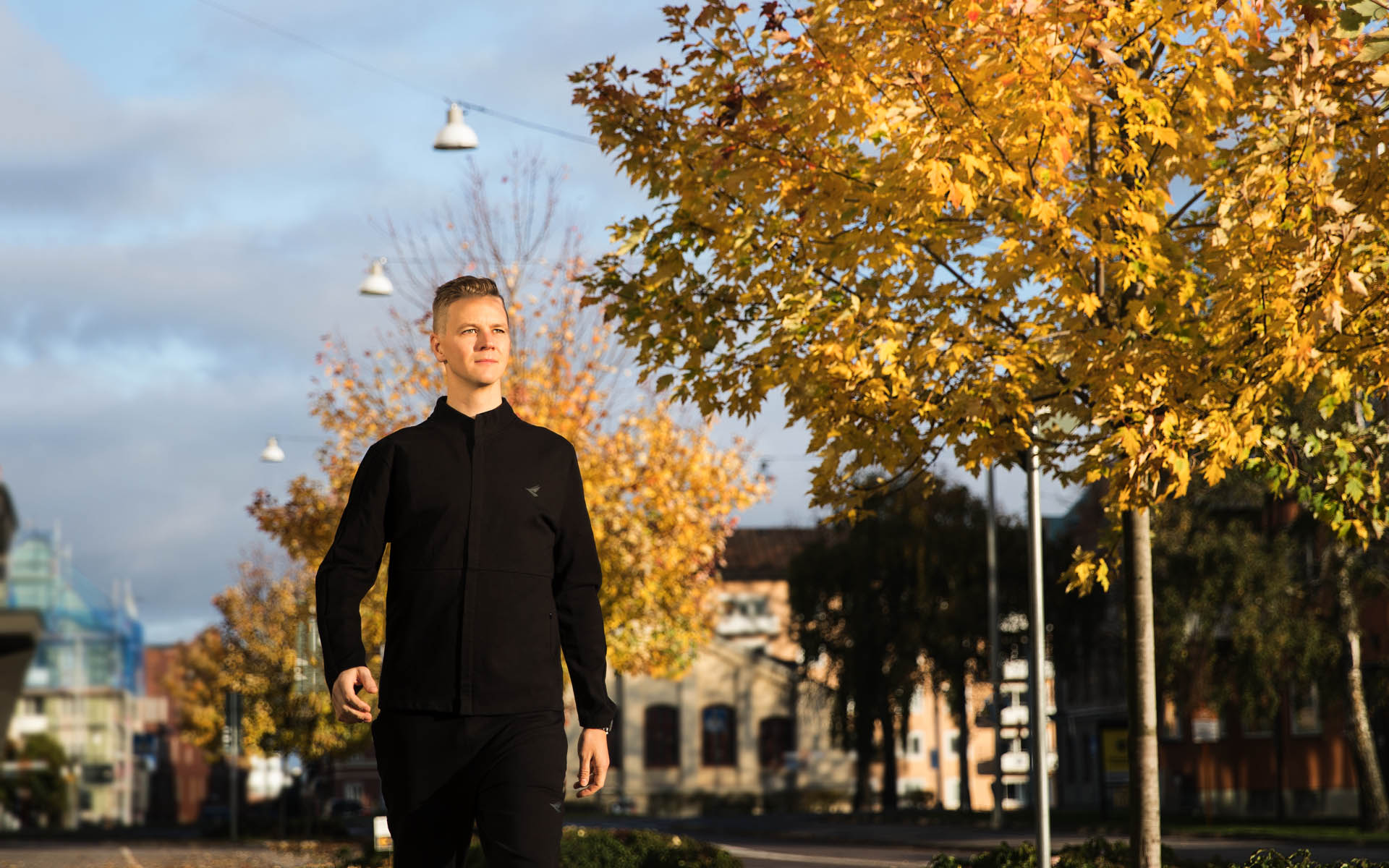
Interview MATHS ELFVENDAL
Maths Elfvendal.
Goalkeeper coach at IFK Norrköping and the swedish national team, as well as educator at the swedish FA.
How does an optimal gameday look like for you?
An optimal gameday starts with a good night’s sleep, waking up rested 9 hours later, breakfast with the staff followed by a meeting with the manager to prepare the presentation for the team. Then I get a workout in, eat, rest and prepare.
I really enjoy the bus ride to the stadium. It’s a nice symbolism to ride together towards a common goal.
What’s the foundation of a successful team?
It is fundamental to have a clear direction that everyone follows in solidarity and a common understanding that the team is bigger than each individual. It is also important that everyone accepts their given role and strive with great work ethic towards our chosen direction, and also trust in the other players to do the same. I also think it is very important that everyone is given space to contribute with their unique talent and experience in their own way, as long as it is for the success of the whole team.
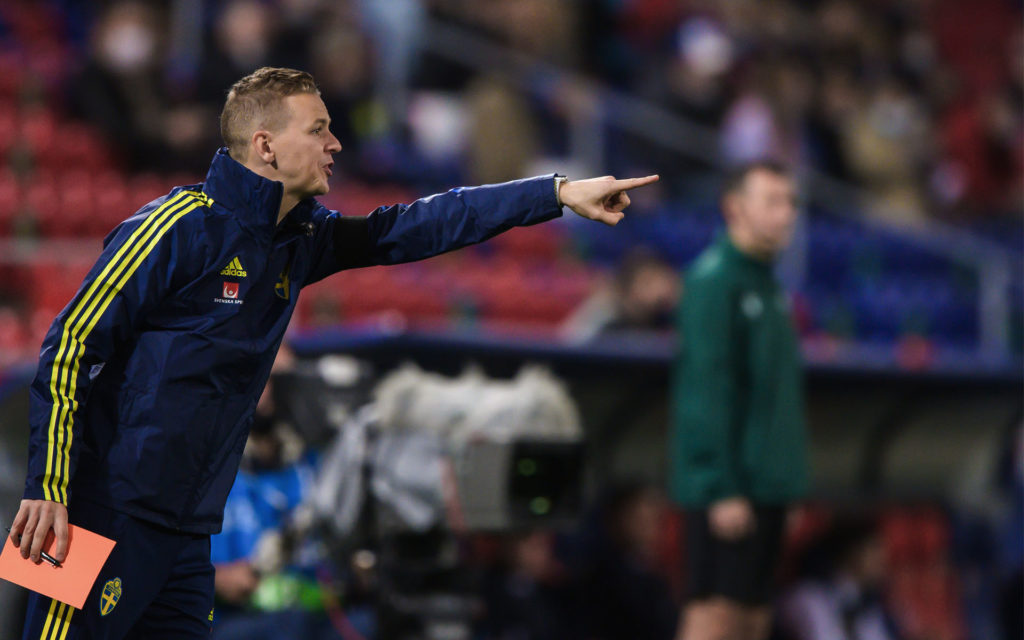
In a bigger picture, not just in soccer, what would be required in the nearest future to be a leader of the world? Not a boss or an authority, but a true leader who influence, serve and make the world better?
This is such a big question that can not be answered shortly, but I think the most fundamental character is a leader who walks the talk and has a great understanding of that life sometimes is challenging for everyone. Being able to recognize that vulnerability in others and also show the same vulnerability themselves.
For me a ‘leader of the world’ is genuine, open and empathetic.
What do you think is the opposite – what will not work to be able to lead and influence people?
Different people are lead and inspired by different things. In general I think people have difficulties to just do things they are told without being included. Instead of top-down leadership I believe in including conversations to motivate the individual to contribute to the team. To a better world.
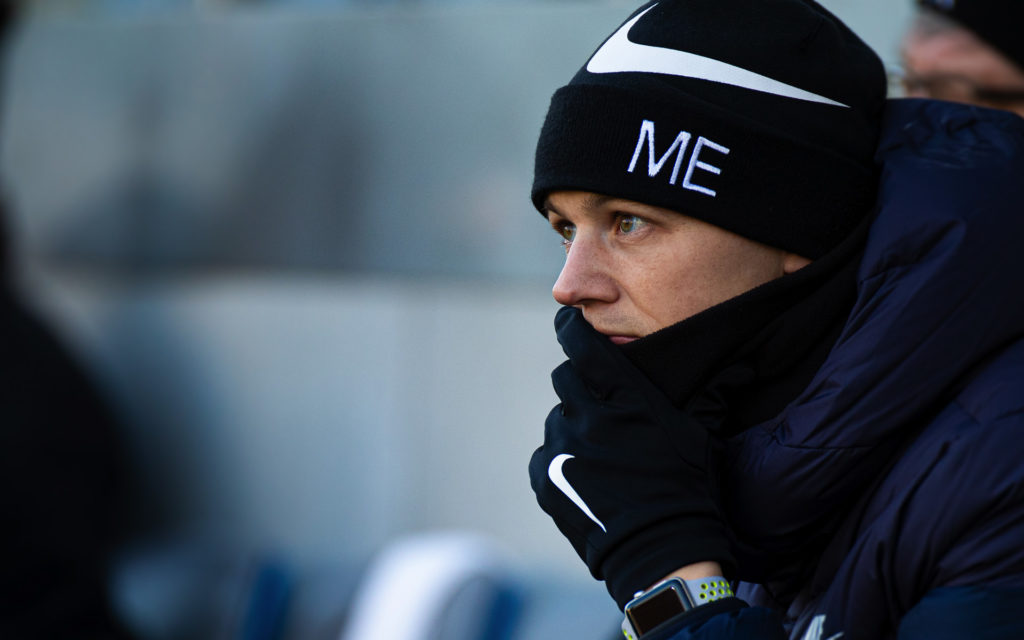
To be able to handle failures, setbacks and challenging times – what have you learned about that?
If I know that I have done everything I could, both in my preparations and during the game, I can accept the result, even if it can be hard of course.
Sometimes we just are not good enough that given day, and it can be other factors that determine the outcome as well.
That I accept the result does not mean that I am not evaluating my own performance. Win or loss – I always reflect afterwards to learn what I can do better/different next time. This is a helpful perspective and strategy to handle setbacks, losses and challenging periods instead of getting stuck in them.
It’s also different to be a coach compared to being a player. As a coach my biggest work is before the game, preparing the players in the best way possible. When the game has started, my influence is limited.
To see deficiencies in our preparations is not a nice feeling and it drives me to be as thorough as I can in my work.
When things get really hard and challenging, I try to be even more open to feedback. I actively approach other coaches that I trust for advice and feedback.
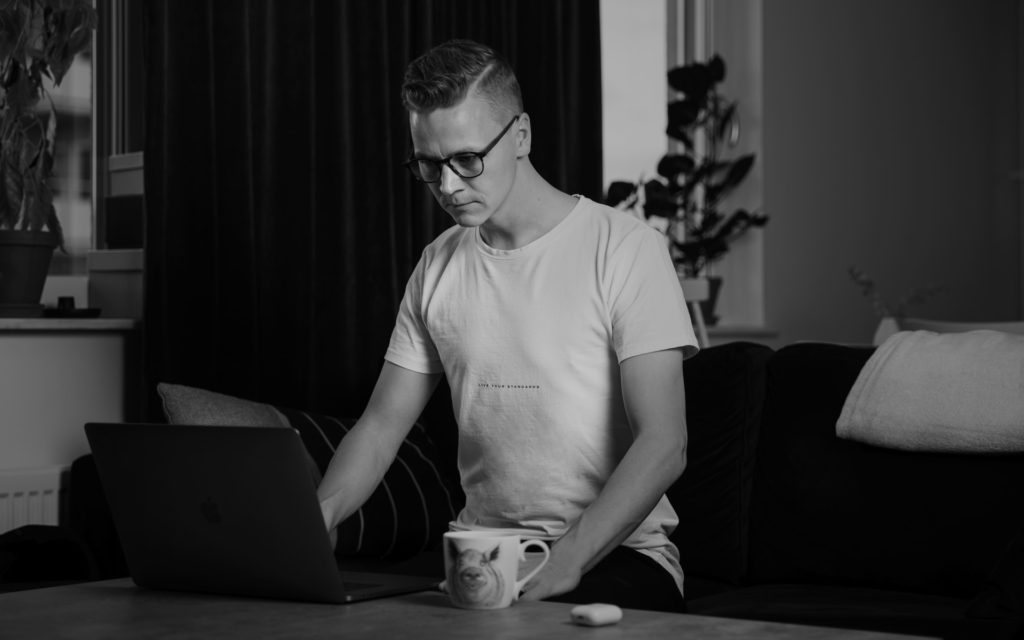
Do you think there are similarities that you can transfer from elite sports to the business world with the aim to create a culture, strategies and outcomes that are top class?
Definitely!
A world class culture and maximizing outcomes should be about clear roles, common values, trust, different competencies and knowledge, low prestige and high work ethic.
It applies to both soccer and business.
In my world we talk a lot about the right behavior that leads us to the outcomes we want. I believe many businesses could benefit from pointing out and evaluate concrete behavior and not just the results. The behavior needs to be evaluated every day, not just on gameday (report day).
You can not be super professional on game days and then cheat the other days. It’s “the other days” that determine the outcome on gameday.
What’s the cultural foundation of success?
Acceptance and an understanding that everyone is different. Respect for everyone’s different personalities and roles.
Our differences is a strength, but there has to be a culture of acceptance and understanding, and a trust that everyone does their best to prepare in order to be able to perform at the highest level.
As a leader it’s crucial to see everyone and celebrate their uniqueness to be able to achieve success together.
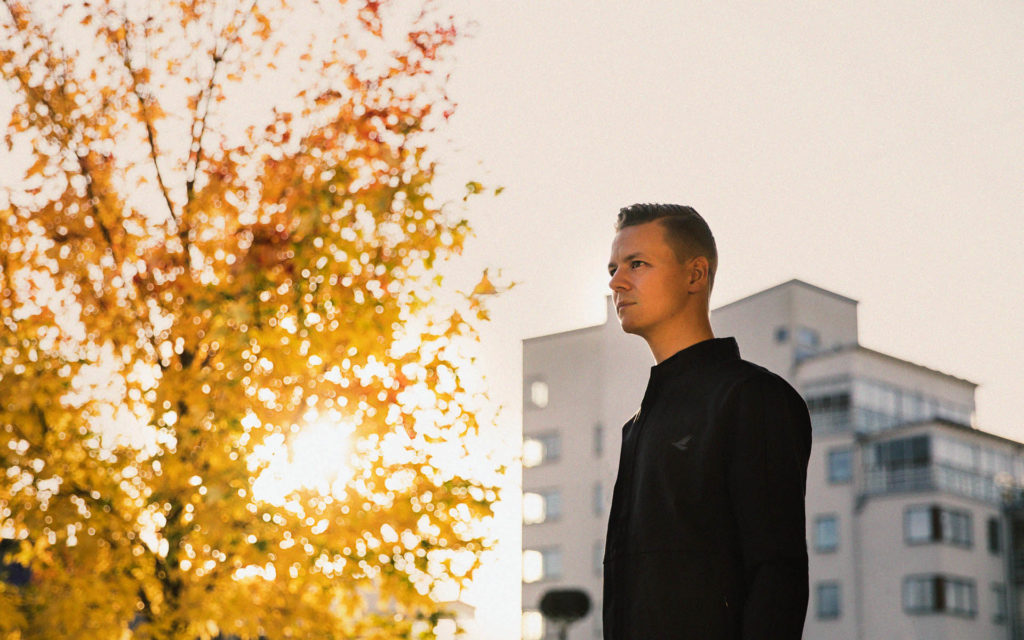
Clothes: Leonardo Jacket
What are cultural behaviors that hinder success?
If the leader does not distribute clear roles or communicate in a clear, effective way, the group will not use their energy and competence in an optimal way. And if the players do not accept their roles and responsibilities the group’s common capacity will be weaker.
If a player is not feeling competent or important enough it will affect his or her performance, which will also influence the team in a negative way.
So, ultimately it all comes down to the leadership.
How can we cultivate a sense of meaning in our lives and allow joy, creativity and a sense of freedom even if we also want to work really hard for growth and outer success?
In the best of worlds there should not be a contradiction there. I think many people are stuck in how things should be instead of actively integrate both sides to create some sort of balance. There are research that shows that shorter work days give better results. More freedom and space for creativity benefit the results.
How this is implemented will of course be different for every operation and company.
We need that balance. We need to work hard, but to be able to work hard we need freedom and recovery.
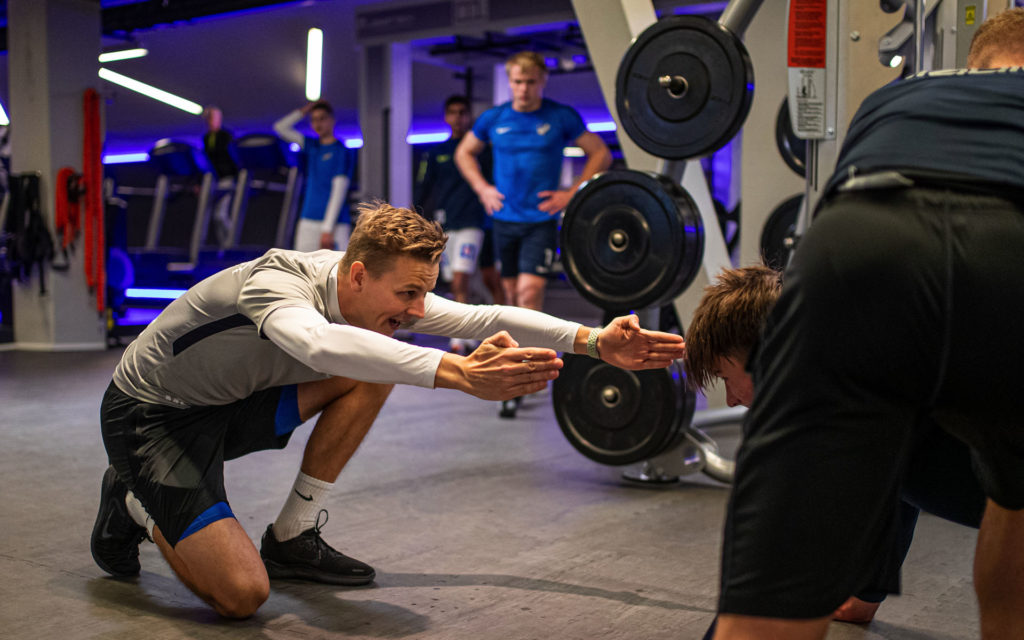
If you would describe IFK Norrköpings’ culture with one word, which is it?
Allowing.
And the swedish national team’s culture with one word?
Determined.
How is it different to build a topclass culture when working with a national team compared to a club team? How do you work with that? What’s really important?
The foundation is the same. What’s different is the time available to work with the culture. With the national team, when it is not european championship or world cup, we are only together for ten days. We have therefore decided to break down our culture into a few concrete guiding stars that we always remind the players of at the start of every gathering.
We think that’s our x-factor where we can be the best in the world, which will give us tremendous adventages on the pitch, so we put a lot of emphasis on that.
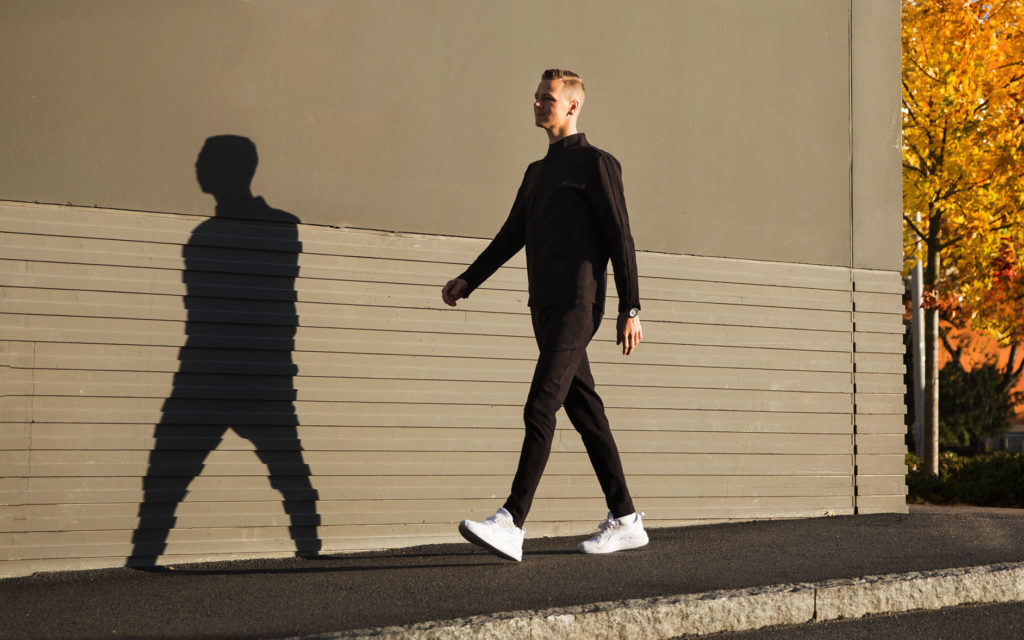
Clothes: Leonardo Jacket and Leonardo Pants
What do you do personally and intentionally to contribute to an exceptional culture?
Lead by example.
I demand high standards on my surroundings, which means that I also set really high standards for myself. I must walk my talk. I do everything I can to be as prepared as possible in everything I do.
Besides that I often use humour to remind the players, and the coaches, of our guiding stars and desirable behaviors.
To meet each and every player as individuals is also extremely important in order to build a positive culture and work environment.
What’s something one easily can do to help foster a more optimal culture?
Start with yourself. Get to know how you want to be, what you think is important, and walk on that path. Challenge yourself and get a mentor and ask them about things. If someone does not contribute enough I often ask open questions.
Everyone needs to contribute, but it is also important that everyone feels included. We do not want top-down management.
What is the most challenging part when working with ultra-competitive people every day?
To be able to have a long-term perspective. To continuously focus both on the process and the short-term performance/result.
We can not miss the long-term process, and as leaders we need to support that process.
How do you do to meet these players fire and driving force, having them play together as a team, and at the same time also value and celebrate their needs and uniqueness as a human being?
That’s the charm with working with groups!
A group becomes a team when everyone accept the needs of the team and want to contribute to the team with their unique qualities, experiences and personalities.
Players are human beings, and if they feel good it is more likely that they will contribute even more to the team.
What’s your superpower as a coach?
Supervision. I can see the smallest detail in the goalkeeper’s technical performance. And the social part. I am genuinely curious about people, and I think that creates a sense of trust and safety to the players that I work with.
What is one area that you want to grow stronger, better, sharper?
The game of soccer and leadership are so wide, it’s hard to pinpoint one particular thing. I want to develop as a person and I spend a lot of time on that.
I think it is going to make me a better trainer and leader too. With a deeper understanding of myself together with a sharper presence I think I can give more to others.
I also want to explore many different things through my job. I want to work abroad, so I want to improve my language skills and widen my network.
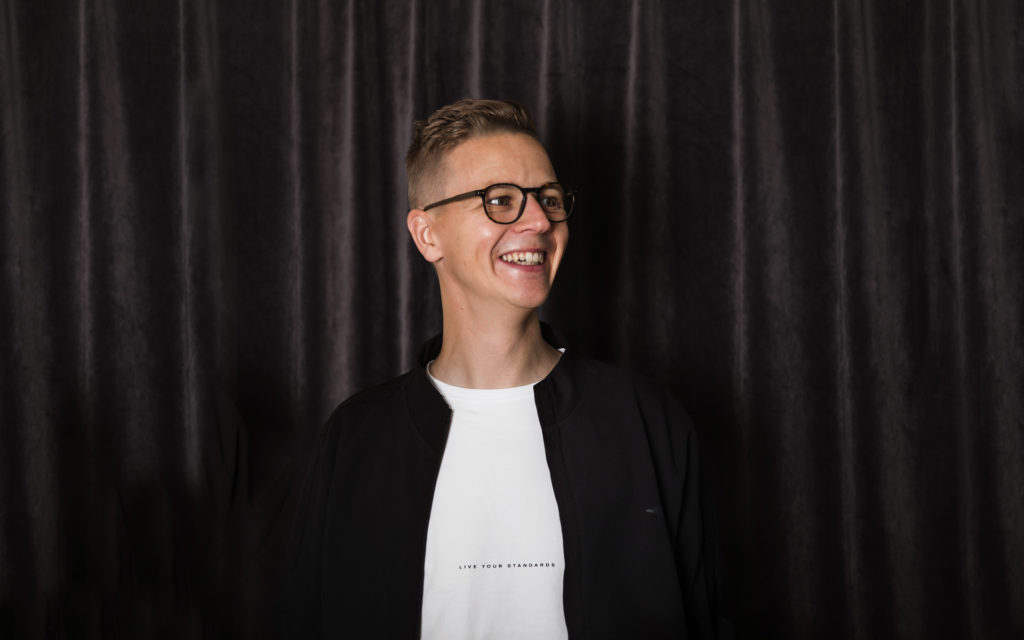
What/how do you do to get better? To elevate as a coach?
At the beginning of my career education was very important. Now I develop the most by visiting colleagues in different leagues and countries. Low prestige and curiosity are very important to be able to reach new levels.
I have learned the most from Javi Garcia (PSG, Sevilla, Arsenal, and now Villareal) who is my mentor, but also from other goalkeeper coaches who works with youth teams in my local area.
I’m also a teacher for the UEFA Goalkeeping A License, and I’m learning a lot by teaching others.
What do you actively do to elevate as a human being?
Me and my partner often discuss values, behavior, meaning and other subjects related to life. Now I also feel more secure and determined to lead a life aligned with my values. I am trying to practice my ability to be present and to contribute to the well being of others, big or small, like a smile or holding the door etc.
The same goes for animals. I feel deeply for animals and their feelings. They’re social beings just as we are. I don’t eat meat. I don’t see any reason at all to eat animals. A plant based diet is also important for our climate.
What’s a strategy of yours to bounce back after a period of lower motivation?
I zoom out. Trying to look at my situation from a broader perspective and remind myself of the privilege that I get to work with my biggest passion. To work with something that affects and engage so, so many people, from players to supporters is as motivating as something possibly could be.
And with that said, even if soccer is a very big and important part in my life, it will never be as important as my family and friends. They’re a true source of motivation and meaning.
How do you optimize yourself and your environment to be able to do your best work? What’s your strategy to enter a state of flow or momentum more often?
Very similar to what a player does; I make sure that I eat good, sleep enough and train as good as I can. My gratitude of being able to work at the highest level together with the perspective that life will end one day make it easier to zoom out from the importance of a game or a tournament, etc. This makes it easier for me to reach flow or momentum.
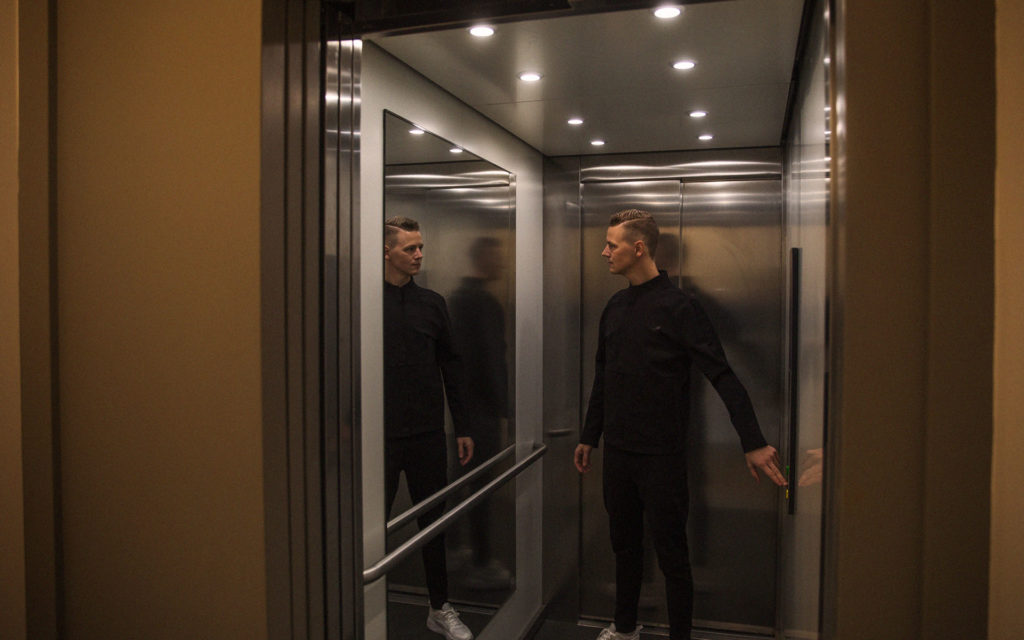
Clothes: Leonardo Jacket and Leonardo Pants
What guides your life? How do you take decisions? How do you know what to choose and what to let go of?
When life ends I hope that my family and myself have had the best lives possible.
I try to balance the short-term and the long-term as good as I can.
I’m very fascinated by people who are at the end of their life, what kind of perspectives and experiences they have.
When I reflect over my life for the last time I want to say to myself: “I am glad that I dared to say YES.” “I am glad that I dared to say NO.” “I am really happy that I valued relationships over work,” and “thank you for living to the best of your capability.”
What are your life’s most important standards?
Being kind, solidary and empathetic. I want to give people good energy and joy, see people and contribute to making the world a little happier and better.
And never leaving things that are in my control up to chance, but influence them at the best of my capability, and let go of the things that I can not control.
And also, being more present and celebrate here and now without any thoughts of what could happen in the future. Give the people in my life my full attention. Tell them that I love them.
And enjoy the magical moment after a hard training session.
In many years when you retire – what would be required for you to be able to look back on your work, and your life, and define it as meaningful and successful?
One of the strongest feelings I’ve ever experienced is to achieve something great together with hard working people that share the same values as me.
I’m really grateful that I get to work together with a manager that have built a team were everyone works incredibly hard with the team’s best interest in mind.
Success for me is both about the sport but also about the humanly side. Being able to experience different countries, perspectives and cultures etc.
I want to look back on my career and be grateful for many friends and memories.
What is your definition of a successful life?
Being able to give safety and unconditional love to a future generation.
What do you think are three skills that we could foster in our children that would improve the world?
Solidarity. Openess. Knowledge, and being able to critically evaluating ones sources.
/ LYS
Photography by
Marcus Falk Olander




